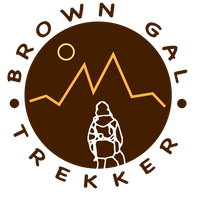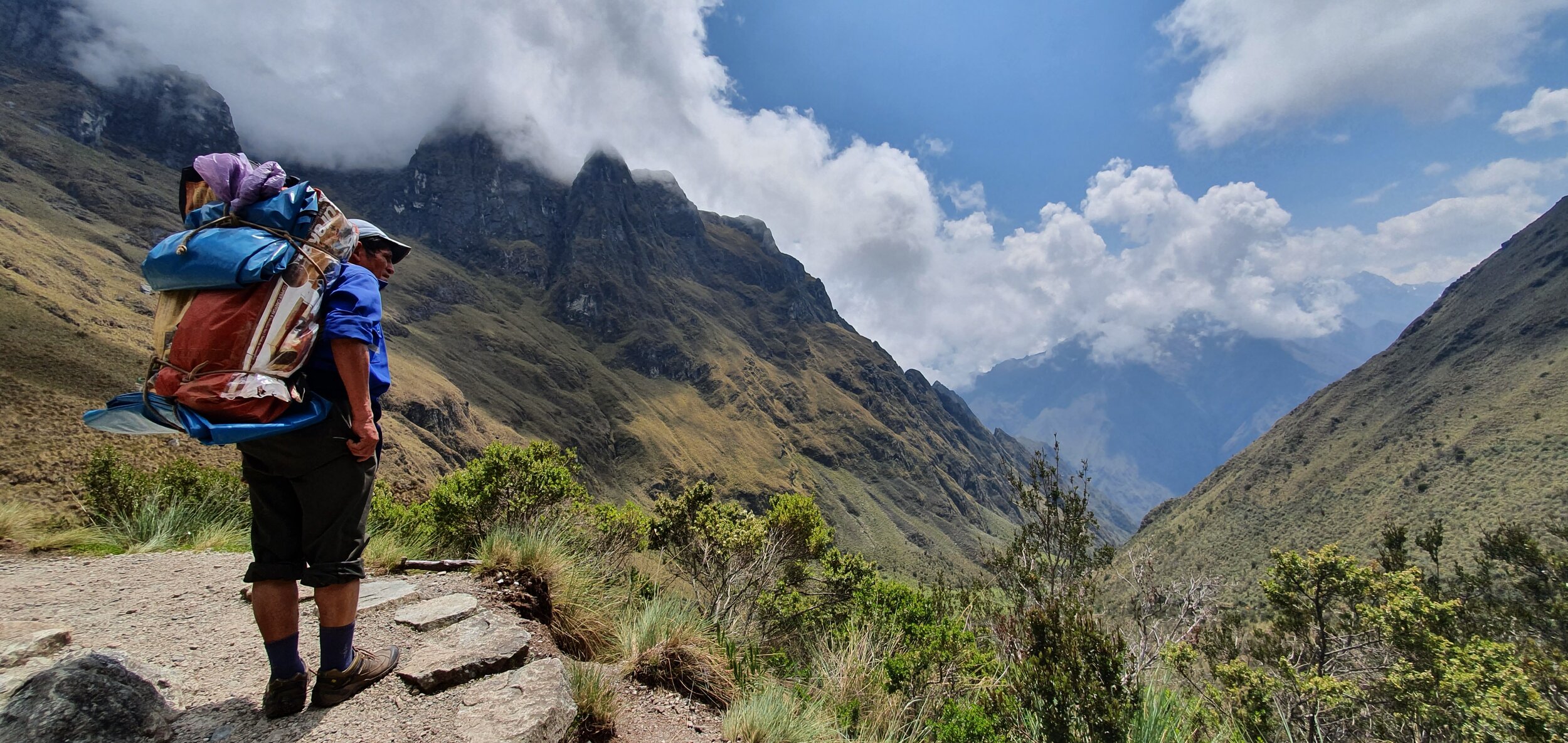The trekking tourism industry has done enough harm on local people. Now, tourists can undo all of it.
I have to warn you that the next few statements I will be making will not in anyway make you feel elated or romantic about traveling. In fact, my next few statements may cause you to feel uncomfortable on top of the ongoing anxiety that you may feel about not being able to travel internationally for a year now due to the pandemic. But eventually, I hope you feel the fire and drive to be an instrument of change.
It is never my intent to bring an alternate view on tourism for the sake of an argument or to merely rattle the system as it stands. For one, I am also a traveler and at times a tourist. I will be for the rest of my life. Second, I also enjoy the notion of travel as the ultimate source of joy and humanness that we seldom feel in our day to day lives. However, we must also understand that travel can and should go beyond the sights and sounds. It is indeed a transformational journey that not only affects us but also impacts others. It's easy to know first-hand how traveling affects our lives because we are our own witness to any events occurring in our lives. But the impact that traveling has on others carries with it a totally different reality. What is the impact on others when we travel? To know the answer to this requires more digging as we aren't always a witness to the real impact of traveling on people around us.
Impact on others? On whom exactly?
This notion has been the ultimate focus of the first 4 years of running my social enterprise and adventure travel company, Peak Explorations. Who are the people affected by my decision as a traveler? And then subsequently, as a tour organizer / operator in the travel space?
I realized there are many people affected, most of whom happen to be the local people of the country that we visit, especially those that work in the tourism industry. In my case, the trips that I run involve guides, porters, cooks, horse, camel or donkey drivers, automobile drivers, and more.
The secondary question is, what impact do we as tourists have on the local people?
When I researched the history of impact of travelers on locals, the obvious notion of creating jobs for the locals jumped out rather quickly. Tourists buy tour products that lead to income for the local people through the creation of jobs. This is a direct benefit to the locals, for sure. Tourists have undoubtedly played a major role in creating jobs for the locals. No one can dispute that to be a positive impact on the locals.
I felt good knowing that as a tour organizer or operator, I am part of the creation of work opportunities for the locals. However, over time, I realized that this notion can misguide and steer us away from the real impact that the current trekking tourism industry has on the local people. After all, long term impact in its highest form on another human being transcends money and tangible benefits. Impact does not end at the creation of jobs. There is more to it than that.
My thoughts led me to question the industry as a whole - whether tour operators have impacted the same locals who benefit financially in a negative way, specifically, within the trekking tourism industry. Sadly, I discovered that tourists have participated without their knowledge in a system that affects tourism workers in an insidious manner, some of which are irreversible at this point, while others are extremely challenging to undo.
And I just have to ask you these questions as a matter of demonstration,
Did you know that the porters on the Inca Trail are consist mostly of Quechua speaking indigenous persons? Did you know also that through an official porter association that has over 4000 porters as members, they have been fighting for their rights to be treated equitably in the form of fair wages, proper food, adequate clothing and equipment, medical benefits and more as porters on the Inca Trail, not for 5 years, 10, 20 or 30 - but for over 50 years - dating back to the time that the Inca Trail Trek was first opened for tourists? The system upholds operations that undermine the value that indigenous people can bring to their own land and territory and in doing so threaten the longevity of the lives and culture of the Quechua people.
It comes as no surprise that the same lack of workforce equity also developed in the trekking tourism industry of Nepal's Himalayas and Tanzania's Kilimanjaro. It also doesn't come as a surprise that the same foreign-owned tour operators that hold the most power and control over the trekking industry in Peru also holds power in Nepal and Tanzania. The systems in play have outsmarted the local people so much so that the blueprint for the exploitation of the local people can easily be used and applied anywhere in the world. And you know what?
That worries me. And, it should worry you, too.
These systems have remained unchecked, unregulated and are free from any form of legal or ethical accountability. In other words, these systems can perpetuate exploitation of porters without consequences.
They had, they do, and they will.
Through my own research, I have gotten so much closer to the nature of the "impact" that the trekking tourism industry has created in all three countries while discovering for myself that the unfair and inequitable treatment of porters have further compounded the marginalization of indigenous local people in Peru, Nepal and Tanzania. We, as tourists, were used as the instruments in depriving the local people of their sense of human dignity and pride. By implication, we stripped them off of their self-respect and individualism. Tourists have been made unknowingly to fund an industry that enslave local indigenous people physically and mentally as they are commodified covertly as cheap labor. We have created a monstrosity in this industry that belittles and dehumanizes the indigenous communities that we purport to love and respect.
When I ask porters what they want, none of them wish to remain working as a porter the rest of their lives. They rely on their children to better the lives of everyone in the family as whole. Many of them confess that they never would want their children to become porters. They will tell you that they wish for their kids to be educated and to have a life free from hardships that they have endured. Those without children, dream about going back to school or starting their own business.
There is no freedom in working as a porter for every porter dreams of leaving it behind for the freedom he or she has yet to attain.
You see, when we tourists tell each other, "Oh, we are giving them jobs - it's a good thing," we have to realize that portering is not a "job", not in a sense where in western cultures laws guarantee that you are protected via fair labor practices. Our notion of jobs comes from a person with privilege. No legal protection or resources exist for porters in Peru, Nepal and Tanzania. None at all.
For the porters of today, it leaves me to conclude that portering is more often than not merely a means to survive or a stepping stone to a better paying and a higher level position in the hierarchy that will carry with it some form of liberation from marginalization and exploitation within the tourism industry (as a guide or a tour operator, for example).
Let's not be self-serving and credit ourselves for creating this position for the local people. We haven't created anything, at least not until portering establishes itself to be a money-earning opportunity that grants the people in it fair wages, proper food, clothing, equipment, medical benefits and more, but above all - a sense of respect, value and dignity.
As I sort through these thoughts in my head about the real impact on the locals, I started to reflect on my own truths. For one, I don't want to partake in an industry that exploits the locals. In whatever capacity I play, be it a tour organizer or a travel writer, I want to reveal only the unfiltered truths about how we as travelers and tour operators affect the lives of local people so we can learn about our roles and start approaching our responsibility with humility and self-awareness that will compel as to act as agents of change.
If the trekking tourism industry has managed to systematically disconnect us from our own sense of humanity by deceit and silencing of truths, who are they to stop us now from regaining it back so we can fully partake in the fight of porters in Peru, Nepal and Tanzania for fair and equitable working conditions? No one is stopping us, not even the system that for an unbelievably long time has perpetuated the greed and exploitation that persists in the industry today. They were able to merely because they remained unchecked and managed to avoid accountability for far too long.
We can create a new version of impact as travelers. We can create accountability. We can turn portering into a real job - one that thrives on equity, fairness and the dictates of human decency.
Learn how and read: 8 Ways Tourists Can Advocate for Workforce Equity in Peru, Nepal and Tanzania
Join the FB community: The Porter Voice Collective

